До студентів факультету аграрного менеджменту завітав [Юрій Єхануров]: «Пам'ятайте, що ви – основа майбутньої влади!»
Продовжуються зустрічі з видатними діячами, які зробили великий внесок в історію України. Цього разу на запрошення Віталія Євстафійовича гостем лекції став український політик, державний діяч, професор Київського національного університету ім. Т. Шевченка та КПІ ім. Ігоря Сікорського Юрій Іванович ЄХАНУРОВ.
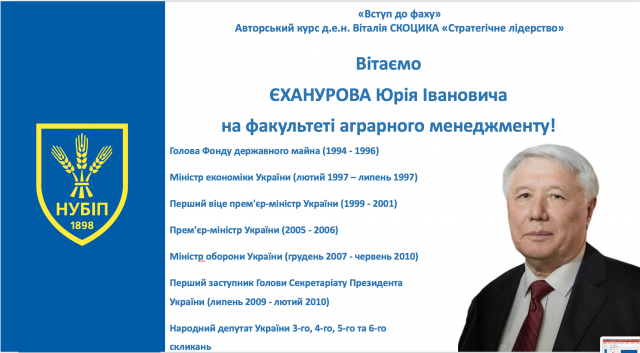
На початку лекції Віталій Євстафійович розповів нам про державний устрій країни, зокрема про його основні принципи та особливості функціонування. Він детально зупинився на трьох гілках влади: законодавчій, виконавчій та судовій, пояснивши їхні повноваження та взаємодію між собою.
Цікаво було послухати Юрія Івановича ЄХАНУРОВА про його досвід голови фонду держмайна, міністра економіки, віцепремʼєр-міністра, депутата та керівника виконкому партії, премʼєр-міністра та керівника низки громадських організацій, нарешті викладача та очільника Інституту оборонних технологій. Юрій Іванович поділився цінними знаннями про роботу законодавчої, виконавчої влади України.
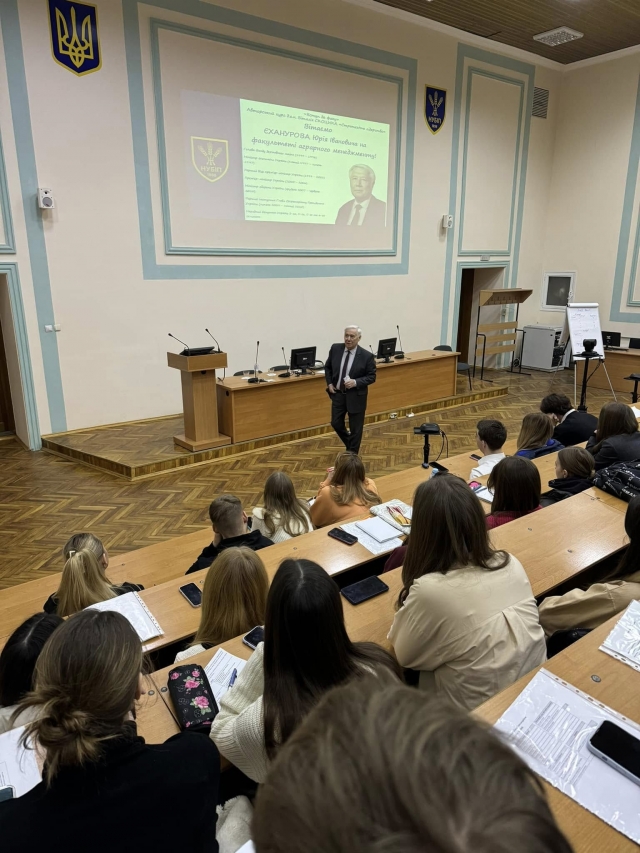
Корисно було дізнатися про професійний ріст Юрія Івановича від майстра на заводі залізобетонних виробів до Прем’єр-міністра України. Його кар’єрний шлях є яскравим прикладом того, як наполеглива праця, знання та відповідальність можуть відкрити двері до найвищих державних посад. Ця історія стала для нас натхненням і ще раз довела, що успіх залежить від постійного розвитку та прагнення до нових вершин.
Юрій Іванович підкреслив ті ж важливі тези, які раніше озвучували Віктор ЮЩЕНКО та Олександр МОРОЗ: «Ви — майбутні управлінці та керівники країни. Вашому поколінню судилося пройти через війну та відбудовувати нову Україну. Пам’ятайте, що саме ви станете основою цих змін, і на вас лежатиме відповідальність за людей, якими будете керувати. Будьте готові до цього!»
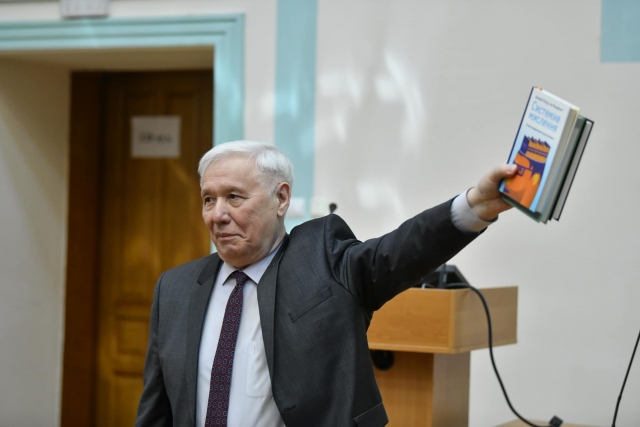
Юрій Іванович поставив перед кожним із нас амбітні цілі, відзначивши, що ми повинні в майбутньому стати елітою країни та бути готовими відповідати за майбутнє України.
Окремо хотілося би зазначити, що Віталій Євстафійович зміг створити конкурентну атмосферу, відзначаючи кращих студентів. Це мотивувало кожного з нас старатися ще більше, удосконалювати свої знання та проявляти ініціативу. Завдяки такому підходу, на факультеті панує здорова конкуренція, яка сприяє саморозвитку та підвищенню загального рівня підготовки.
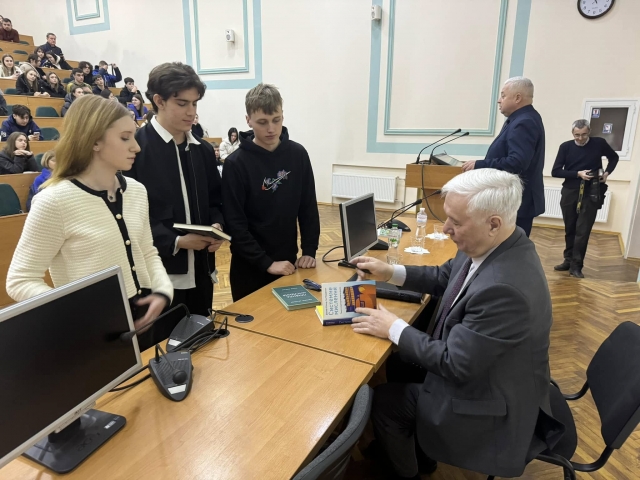
На сьогоднішньому занятті були відзначені студенти: Марія ПІСКУН, Андрій РЯБОВ, Олександр КОЛОМІЄЦЬ. Їхній результат став свідченням старанної роботи та відповідального підходу до навчання. Юрій Іванович Єхануров подарував їм книжки з особистим інскриптом.
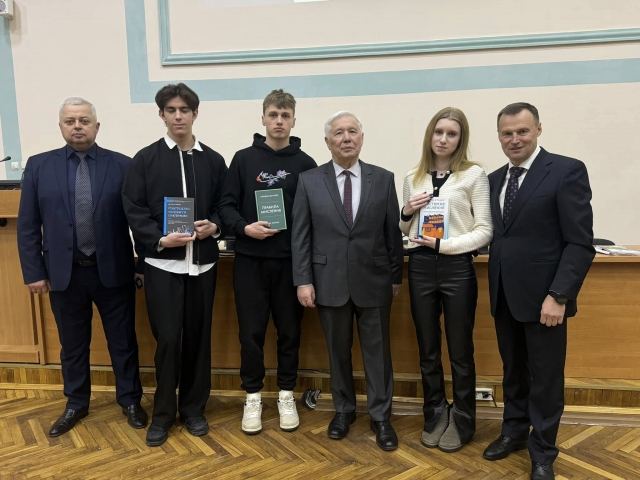
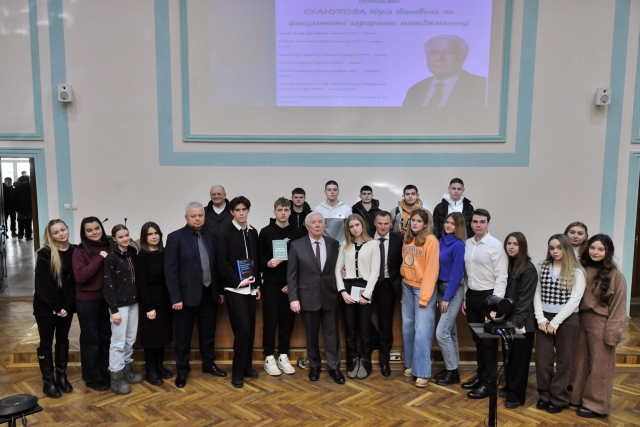
Очікуємо наступних корисних та цікавих зустрічей з видатними особистостями в нашому неординарному учбовому процесі.
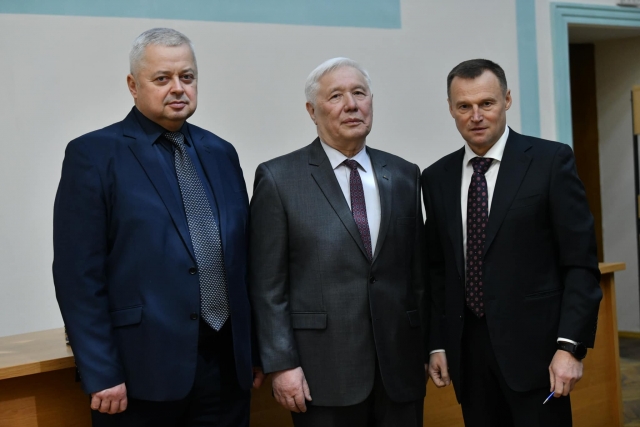
Як каже Віталій СКОЦИК: «Далі буде!»
Марія ПІСКУН,
студентка 1 курсу
ОП «Менеджмент міжнародного бізнесу»
факультету аграрного менеджменту